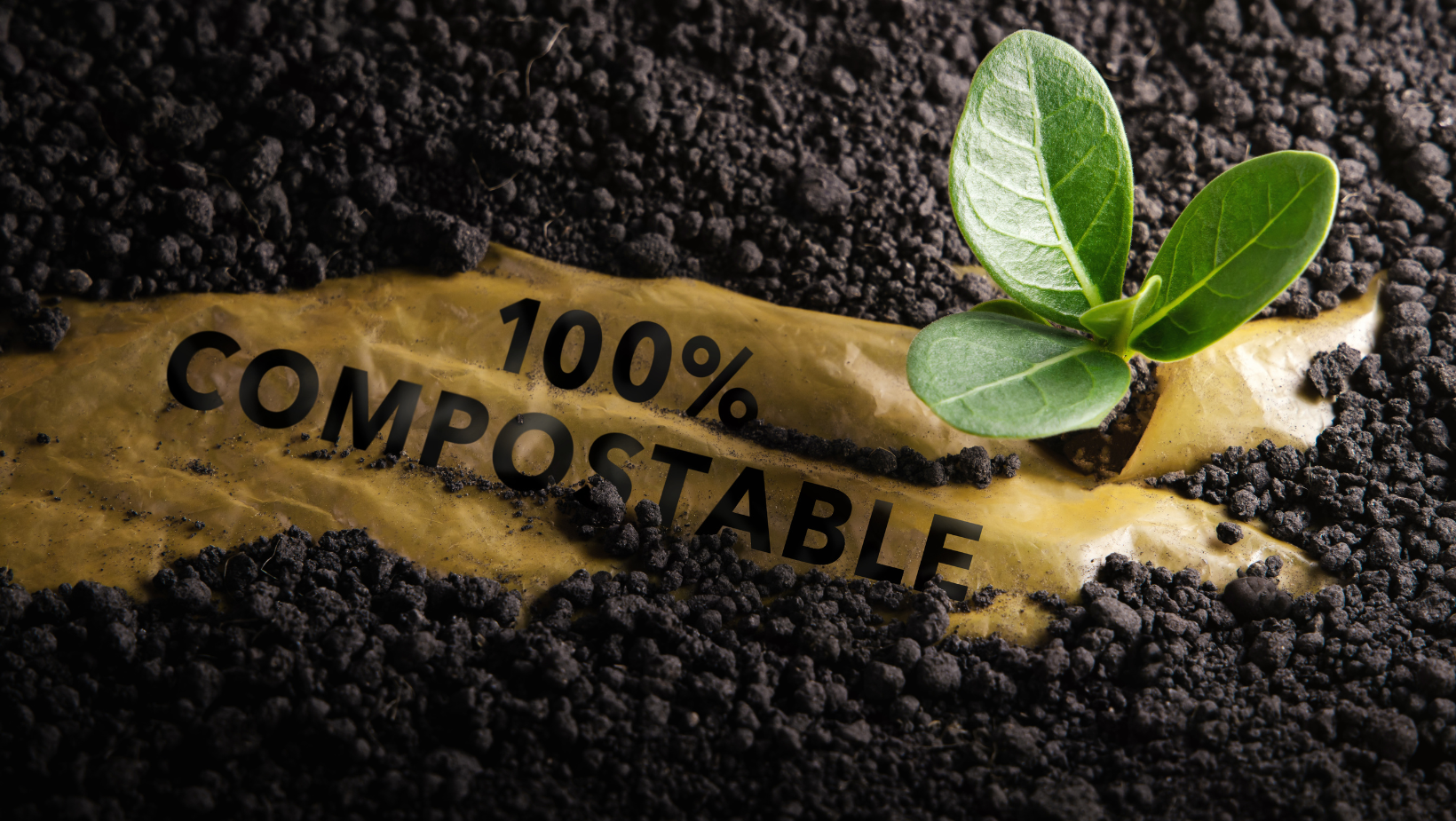In offices and businesses across America, the trash can is an all-too-common destination for everything from coffee cups to leftover lunch. It's a quiet, constant stream of waste. But what if we could turn a significant portion of that stream into a resource?
American businesses are responsible for a staggering amount of the nation's waste, but that also means they hold immense power to drive positive change. Switching to certified compostable products and, more importantly, implementing a composting program isn't just a trend—it's a powerful, practical step towards a more sustainable and responsible way of doing business. This guide, grounded in current data, will walk you through the real-world benefits and the clear steps to make it happen.
Table of Contents
More Than Just a Good Deed: The Verified Benefits
Adopting a composting program goes far beyond just feeling good about your company's environmental efforts. It's a sound business strategy with tangible returns, backed by compelling data.
1. A Measurable Win for the Planet
Let's start with the big picture. When you throw away a paper coffee cup or food scraps, they end up in a landfill. Trapped without oxygen, this organic material decomposes and releases methane, a greenhouse gas that Project Drawdown identifies as being far more potent than carbon dioxide in the short term. By diverting this waste, composting can slash these associated emissions by more than 50%. It’s one of the most direct ways your business can lower its carbon footprint, turning waste into nutrient-rich soil instead of harmful gas.

2. Smart for Your Budget, Great for Your Brand
The financial case for going green is stronger than ever. While there isn't a simple federal tax credit for buying compostable forks, a holistic sustainability plan can unlock significant savings and build a brand that resonates with today's consumers.
Financial Incentives are Growing: The Inflation Reduction Act of 2022 offers a suite of tax credits for businesses investing in clean energy and energy efficiency—upgrades that often go hand-in-hand with a new composting program. On a local level, cities are stepping up. Boulder, Colorado, for example, offers businesses direct rebates to help cover the costs of implementing reusable systems, and New York's Business Food Waste Mitigation Grant Program helps businesses fund the very equipment needed for organics recycling.
The Power of Consumer Choice: Today’s customers are voting with their wallets. A 2024 PwC survey found that 80% of consumers are willing to pay more for goods from a sustainable source. Further research from Google highlights that 82% of shoppers want a brand’s values to mirror their own, and 66% actively look for eco-friendly brands. When your business visibly commits to sustainability, you're not just reducing waste; you're building a loyal customer base that sees you as a partner in creating a better world.
Your Roadmap to a Compost-Friendly Workplace
Ready to make the change? A successful transition is all about having a thoughtful plan. Here are the steps to make your program effective and impactful from day one.
Step 1: Start with a Waste Audit
Before you do anything else, play detective. For a few days, observe what's actually being thrown away in your office. You'll likely find that high-traffic areas like kitchens, break rooms, and cafes are ground zero for single-use items. This simple audit will give you a clear picture of where to focus your efforts, showing you exactly where compostable alternatives for cutlery, plates, cups, and food packaging will make the biggest difference.

Step 2: Become a Certification Expert (It's Easy!)
This is the most critical step. In the world of green products, not all are created equal. Terms like "biodegradable" can be misleading. To ensure the items you buy will actually break down in a commercial facility, you need to look for third-party certifications. The two gold standards in North America are:
BPI (Biodegradable Products Institute): The most established authority, BPI verifies that products meet scientific ASTM standards for compostability.
CMA (Compost Manufacturing Alliance): A vital newer certification, CMA takes it a step further by field-testing products in large-scale, real-world composting facilities to ensure they break down effectively under industrial conditions.
Choosing BPI or CMA-certified products ensures you're part of the solution, not contributing to a new problem.

Step 3: Check With Your Local Hauler
Before you launch your program, make a quick call to your local waste management service, or check our Find-A-Composter database. Confirm that they have a commercial composting program and ask for their specific guidelines. Every facility is different, and contaminating the compost stream with unaccepted items can ruin a whole batch. A five-minute conversation can save a lot of headaches and ensure your efforts are truly effective.
Step 4: Engage Your Team: Make Them Champions
A composting program is only as good as the people who participate. Get your team excited and on board.
Share the "Why"
Host a brief launch meeting or send a company-wide email explaining the incredible environmental and business benefits. When people understand the impact, they are motivated to participate.
Make It Obvious
Good signage is your best friend. Use simple, visual guides right above the waste stations showing what goes where. Label every bin clearly: Compost, Recycling, and Landfill.
Convenience is Key
Place compost bins everywhere organic waste is created—right next to the coffee maker, in the kitchen, in the break room. Don't make people walk across the office to do the right thing.
Step 5: Track Your Success and Celebrate It
Accountability and celebration maintain long-term momentum.
Monitor your waste bills to see the savings from lighter landfill bins.
Keep track of how many bags of compost you're diverting each week.
Action: Share these collective wins with your team in meetings or newsletters. Celebrating your progress reinforces your company's commitment to its values.

A Greener Future, One Workplace at a Time
Transitioning to certified compostables and implementing a simple collection program is more than just an operational adjustment. It’s a visible statement about your company's commitment to the future. It's a tangible action that reduces your environmental footprint, builds deeper loyalty with your customers, and benefits your bottom line.
By following this practical, informed approach, your business can become a leader in the movement toward a sustainable and regenerative economy—without adding significant complexity to your day.
Get Started: Recommended Products & Next Steps
Ready to stock your breakroom with certified compostable alternatives? Here is a practical list of Green Paper Products items that every office manager needs to launch a successful program immediately.
Coffee Cups
Cutlery
Plates/Bowls
Compost Bin Liners
Ready to Make the Switch?Your transition to a greener workplace starts here. Browse our complete catalog of BPI and CMA Certified Compostable Products and place your first order today. We offer competitive pricing, bulk ordering, and fast shipping to keep your office running smoothly and sustainably.
→ Shop the Complete Collection of Certified Compostable Breakroom Supplies Here (CTA Button Placeholder URL)
We are constantly looking for ways to make the transition easier for busy managers. If you have a suggestion for a product we should add to our lineup to simplify your specific office needs, please contact our support team—we'd love to hear it!